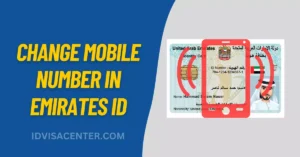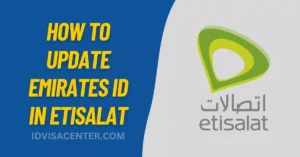Gratuity Calculator UAE Online 2025 (MOHRE Updated)
Gratuity Calculator UAE
In the UAE, gratuity (مكافأة) is a mandatory end-of-service payment provided by employers to expatriate employees when their employment ends. It serves as financial compensation for the years of service, helping employees transition smoothly after leaving a job.
The UAE Labour Law mandates gratuity payments for eligible employees, but the amount varies depending on contract type, tenure, and how the employment ends.
To simplify the complex calculations, we’ve included an easy-to-use UAE Gratuity Calculator tool within this article. This tool provides instant estimates so you can confidently plan your next steps.
What is Gratuity in the UAE?
Gratuity is a key employee benefit in the UAE for expatriates working in the private sector. It is based on the employee’s basic salary and reflects their length of service. However, calculating gratuity manually can be tricky, as the amount depends on factors such as:
- Type of employment contract (limited or unlimited).
- Reason for leaving (resignation or termination).
- Years of service and basic salary.
Our UAE Gratuity Calculator tool simplifies these calculations, saving you time and avoiding potential mistakes.
How to Use the UAE Gratuity Calculator Tool?
Our gratuity calculator tool is straightforward. Follow these steps to get your gratuity estimate:
- Enter Your Basic Salary: Provide your last drawn basic salary, excluding other allowances.
- Select Your Contract Type: Choose between a limited or unlimited contract.
- Input Service Start and End Dates: Enter the precise start and end dates of your service.
- Choose the Reason for Leaving: Specify whether you resigned or were terminated, as this impacts the gratuity amount.
- Click Calculate: Instantly receive your gratuity estimate based on the details you provided.
This tool ensures accurate and quick results, helping you understand what to expect from your employer at the end of your employment.
Gratuity Calculation: Limited vs. Unlimited Contracts
1. Gratuity Calculation for Limited Contracts
In a limited contract, the employee agrees to work for a fixed term. Gratuity eligibility depends on completing the contract’s duration. If the employee leaves early, they may forfeit their gratuity.
- Service Duration: 1 to 5 Years
Formula: (Basic Salary × 21 Days × Years of Service) ÷ 30 - Service Duration: More than 5 Years
Formula: (Basic Salary × 30 Days × Years of Service) ÷ 30
2. Gratuity Calculation for Unlimited Contracts
An unlimited contract offers more flexibility, allowing either party to terminate the agreement with notice. However, gratuity entitlements vary based on whether the employee resigned or was terminated.
Gratuity for Resignation (Unlimited Contract)
- Less than 1 Year: No gratuity entitlement.
- 1 to 3 Years: 1/3 of 21 days’ basic salary per year of service.
- 3 to 5 Years: 2/3 of 21 days’ basic salary per year of service.
- More than 5 Years: 21 days for the first 5 years, plus 30 days for each subsequent year.
Gratuity for Termination (Unlimited Contract)
- Less than 1 Year: No gratuity entitlement.
- 1 to 5 Years: 21 days’ basic salary per year of service.
- More than 5 Years: 21 days per year for the first 5 years, and 30 days for each additional year.
When Can Gratuity Be Denied?
According to Article 139 of the UAE Labour Law, gratuity may be withheld under specific circumstances:
- Improper Resignation: Resigning without proper notice, unless justified by specific reasons, can result in forfeiting gratuity.
- Termination for Misconduct: If the employee was involved in criminal activity, theft, or other misconduct, gratuity may be denied.
- Incomplete Service Period: Employees who leave their job before completing one year of service are not eligible for gratuity.
- Avoiding Termination: Resigning to avoid disciplinary action or dismissal may also result in denied benefits.
Gratuity Eligibility Criteria and Legal Guidelines
- Complete at Least One Year of Service:
Employees must work for a minimum of one continuous year to qualify for gratuity. - Basic Salary is Key:
The gratuity is calculated based only on your basic salary, excluding allowances such as housing, transportation, and utilities. - Understand Your Contract Type:
Knowing whether you are under a limited or unlimited contract helps determine the specific formula for your gratuity. - Keep Accurate Records:
Maintain documentation of your employment contract, start and end dates, and salary details to ensure you can claim your gratuity smoothly.
Why Use Our Gratuity Calculator Tool?
Calculating gratuity manually can be challenging due to the numerous rules involved. Our UAE Gratuity Calculator tool ensures accurate results and offers several advantages:
- Avoid Errors: No need for manual calculations that could result in mistakes.
- Time-Saving: Get results in seconds by entering key details.
- Plan Better: Understand your entitlements before leaving your job.
- Financial Transparency: Know exactly how much to expect when your service ends.
Try our calculator now to get a clear picture of your end-of-service benefits!
FAQs
Who is Eligible for Gratuity in the UAE?
Expatriate employees working in the private sector are eligible for gratuity, while UAE nationals receive pension benefits through the National Pension Plan.
When Do Employees Become Eligible for Gratuity?
Employees qualify for gratuity once they complete one year of continuous service. If they resign or are terminated, they are eligible based on the relevant Labour Law provisions.
Is There a Maximum Limit on Gratuity?
Yes, the maximum gratuity amount cannot exceed two years’ basic salary, regardless of the employee’s service duration.
How is Gratuity Accrued?
- For the First 5 Years: 21 days of basic salary per year of service.
- After 5 Years: 30 days of basic salary for each additional year.
When Can an Employer Deny Gratuity?
An employer may withhold gratuity if:
- The employee commits misconduct, theft, or damages company property.
- The employee resigns without legal notice or to avoid disciplinary action.
- The employee fails to provide valid proof of employment or contract.






